
 |
|
| |||||||||||
|
The Hitchcock 9
The British Film Institute (BFI) has recently completed a
huge project: the restoration of Alfred
Hitchcock's nine surviving silent films (one of his movies, The
Mountain Eagle is considered
lost). The films are now touring North
America and their first stop was
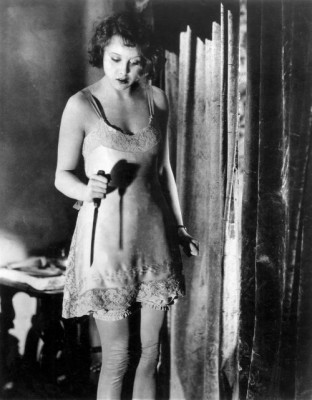 Seeing Hitchcock's earliest works back-to-back is an eye opening experience. His silent films (with a couple of exceptions) and usually ignored and considered minor works, but these movies are anything but trivial. They show that the famous director was talented and innovative from his very first film, and illustrate that he was a master at more than just suspense. He was equally adept at straight drama and even comedy and there seemed to be a very small learning curve involved. He hit the ground running and even at the age of 25, when he directed his first film, Hitchcock was incorporating themes and ideas that he'd continue to explore for the rest of his career. That was the most surprising aspect of the Hitchcock 9, as the films are being called: the ideas and themes that would come to identify his films (and be called 'Hitchcockian') were present even in his early work. In The Pleasure Garden, he has a woman being murdered violently and fairly graphically, an idea he'd revisit most famously in Psycho. These films also explore other Hitchcockian plots such as blackmail (Blackmail, naturally), serial killers, and most effectively, the hunted man (Blackmail, The Lodger), but they also show Hitch employing innovative storytelling devices and visual feats that would sever him well in the future such as double exposures and extreme close-ups. In Downhill, for example, Ivor Novello has allowed himself to be expelled from school for something he didn't do rather than rat on a friend. The camera is effectively placed high above him to make his character look small, depressed, and alone. Hitchcock would use similar angles in some of his most well know work. Favorite images and fears crop up in these early films too. One movie has a man climbing past a giant bust of a Pharaoh that's very reminiscent of North by Norhtwest and also features him falling from a great height (a common fear that would be integral to Vertigo). 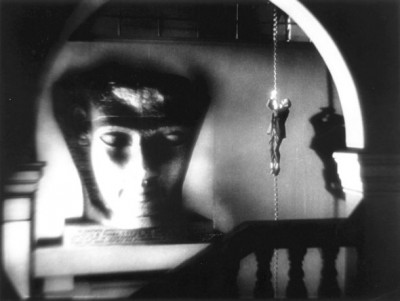 Suspense plays an important part in many (thought not all) of these films of course. The film that is widely regarded as the first "Hitchcockian" film is The Lodger, and it has the look and feel of one of his later films along with several similarities to Rear Window. Like the Jimmy Stewart film, The Lodger ends with a man dangling off an edge while danger is racing towards him. It's quite a thriller, and it was Hitchcock's first major commercial success. Even in his first film however, Hitchcock manages to ratchet up the tension as a deranged, mad killer captures a woman and announces that he's going to kill her. It's very clear that the director had in intuitive knowledge of what would get theater goers on the edge of their seat. The restorations are very impressive also. After years of having to view low quality public domain copies on DVD from budget publishers (some with no musical accompaniment at all) it was a joy to see these movie with a nice looking image. I have never seen The Lodger look so clear and clean, and the overall quality of the group is nothing short of outstanding. The only exception is Easy Virtue. There are only 16mm reduction prints still in existence, and they were all made from the same 35mm source. The BFI did the best they could with what they had, but the result is a very soft picture with mediocre contrast. The nine films presented in this program are: The The plot revolves around two actresses who are trying to make it on their own. Patsy, a hard working and good hearted girl is in the chorus of a show and lives in a small modest flat. She takes Jill under her wing after she spots the girl, fresh off the bus, surprised that she can't get an immediate interview with the show's director. Jill has another view on getting ahead though. She's willing, and eager to sleep her way to the top even if it means cheating on her fiancee who is off in "The East" trying to make enough to support his girl. The contrast between the two characters, and their ultimate fates, is very interesting. If this movie had been made in The Lodger: This is the film that started the young Alfred to becoming "Hitchcock." A serial killer is stalking 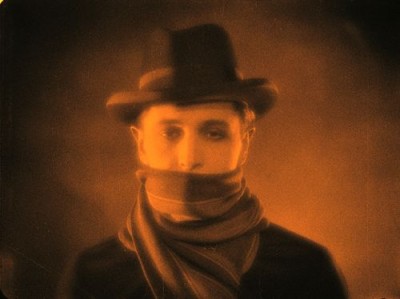 It's easy to see why this film grabbed everyone's attention when it was first released. It's mysterious, well constructed, and visually quite appealing. Hitchcock had just returned from Downhill: For his next film the studio wanted Hitchcock to work again with the star of The Lodger. In this film Ivor Novello play Roddy, a schoolboy (it's a bit of a stretch, but Ivor manages to pull it off) who is expelled when a local woman falsely accuses him of getting her pregnant. Rather than reveal that his best friend is actually the father, Roddy leaves the school and returns home, only to get into a fight with his father. He storms off into the night vowing not to return. Life is difficult however, and Roddy starts a long, slow decent to the bottom. One of his darkest silent pictures, this film has some great sequences that are really something special. Hitchcock enjoys playing with the viewer's perception of reality throughout the film. Soon after Roddy leaves home we see him dressed in a fancy tuxedo, obviously very well off. As the scene progresses it's quickly revealed that he's actually a waiter in a restaurant, working hard to earn his way. Except that he uses his position to steal a valuable trinket from a customer, so obviously his poverty has affected him. But then the customers start singing and girls run in and start dancing and in the final revelation everyone discovers that he's acting in a play. A similar event occurs later in the movie when Roddy is dancing with lonely women for money in Easy Virtue: This film, based on a work by Noel Coward, is a minor film. A woman, Larita, as involved in a sex scandal retires to the While it's not a bad film, it is hard to identify with the characters when seen today. The sex scandal is laughably tame (Larita spurns the advances of an artist painting her portrait...it's more of a non-sex scandal) and Hitchcock is using the movie to show the petty behavior of the upper classes, but it doesn't seem that shocking today. Still there are a couple of brilliant scenes, such as the way he reveals that Larita is going to get married. Instead of placing title cards, we just see the facial expressions of a hotel operator who is listening in on a call. It was a wonderful, and funny, sequence and there was applause from the audience after it ended. The Ring: The only film that Hitchcock wrote, for his inspiration he turned to the world of boxing. The plot revolves around a love triangle involving the champ, Bill, his up-and-coming sparring partner, 'One Round' Sander, and Sander's girl, Mabel. When Sander devotes his time and energy to training, Mabel finds sympathy in Bill, who has already made it to the big leagues. 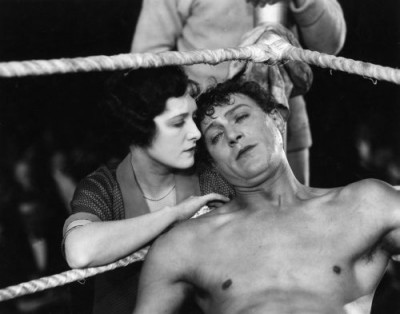 The plot is simple, and some of the devices are a bit too obvious (Bill gives Mabel a snake bracelet soon after they meet, and she touches it whenever she's thinking about him. The symbolism is a bit heavy at times, but at least he doesn't give her an apple too) but the story is engaging and it is a well made film. There's a good amount of humor in the beginning that starts the movie off on the right foot. The Farmer's Wife: I have an interesting history with this movie. I bought a copy on DVD years ago and tried to watch it twice - both times I fell asleep. I gave up at that point and wasn't really excited about having to fight to stay awake (and probably lose a third time). While the beginning is rather slow and fairly pointless (the first half hour can be summarized as "years after his wife dies, a farmer's daughter gets married") after that this becomes a hilarious comedy that had the whole audience laughing. 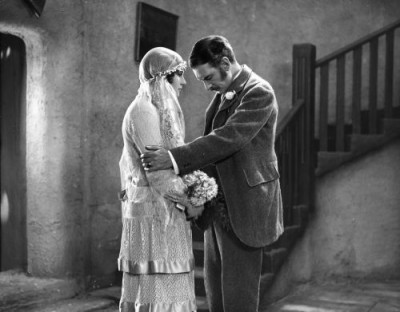 After a widower's daughter leaves home, the man decides it's time to look for a new wife as sets out doing it with a straight forward attitude that guarantees he won't have any takers. The dialog is uproarious but the physical comedy is excellent too. There's a scene where the farmer arrives to an afternoon party half an hour early so that he can propose to the host that's great. The man doesn't have the slightest clue that arriving that early is an inconvenience and that he's picking the worst possible time to woo a potential mate, but he doesn't really bother to woo her at all. He messes up her finely appointed food table, much to her chagrin, and lets her know that he's decided that she's acceptable. "Some men like a little fat on their women" he informs her. This film was one of my favorites. An unsung classic marred only by a slow opening, it's a hilarious film that should be better know. When a frivolous young woman takes her father's plane and crashes it into the Though this romantic comedy had potential, it just didn't live up to it. There are too many contrived plot devices (for example the boyfriend walks out without a word as soon as he hears that his girlfriend is broke, but it's so he can earn enough to support her) and in the end nothing has really changed, which made me wonder what the point was. The worst offense however is that it's not funny. Most of the jokes fall flat, which is odd because in his earlier films Hitchcock displayed a knack for getting laughs. The Manxman: Hitchcock comes roaring back after the previous disappointing film with another strong movie. Two childhood friends take different paths in the world. Pete becomes a fisherman while Phillip goes to school and becomes a lawyer, but both end up falling in love with the same women, Kate. Knowing that he'll never be able to support Kate unless he owns his own boat, Pete goes off to 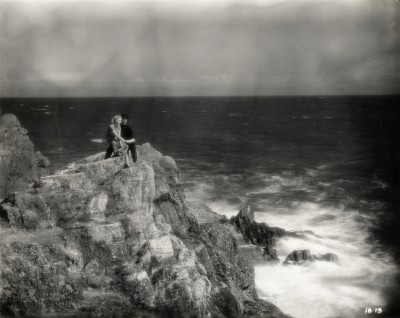 That's not the case however, as Pete is still alive and has made enough money to return home and marry the woman he loves, which she does even though she loves another. This is a gripping drama, a bold tragedy that could have been dull but in the hands of Hitchcock it's wonderful. In the climax of the film the director ramps up the suspense and tension masterfully making it the best scene in the film. Blackmail: For his final silent picture Hitchcock made another thriller, an intense film about a woman, Alice, who kills a man while he is trying to rape her. Not sure what she should do, she flees and goes home, not realizing that someone has seen her. He soon shows up on her door however, looking for a perpetual stream of revenue. This was a great film, and one of my favorites from this festival. Anny Ondra does a magnificent job as These films are not the chronicle of a director coming into his own and learning his craft, rather they're a group of movies that show a talented, creative, and very adept director who just happens to be at the start of his career. The silent Hitchcocks are largely ignored and that's a shame as they are actually very good. The Hitchcock 9 are currently touring the
Archives
The 5 Most Influential Summer Blockbusters
Los Angeles Comic-Con Cosplay Spotlight Notes from Book Expo DVD Talk Interview: Batman: Return of the Caped Crusaders Compete Archives
Review Staff
| Newsletter Subscribe
| Join DVD Talk Forum
|
| |||||||||
| |||||||||||